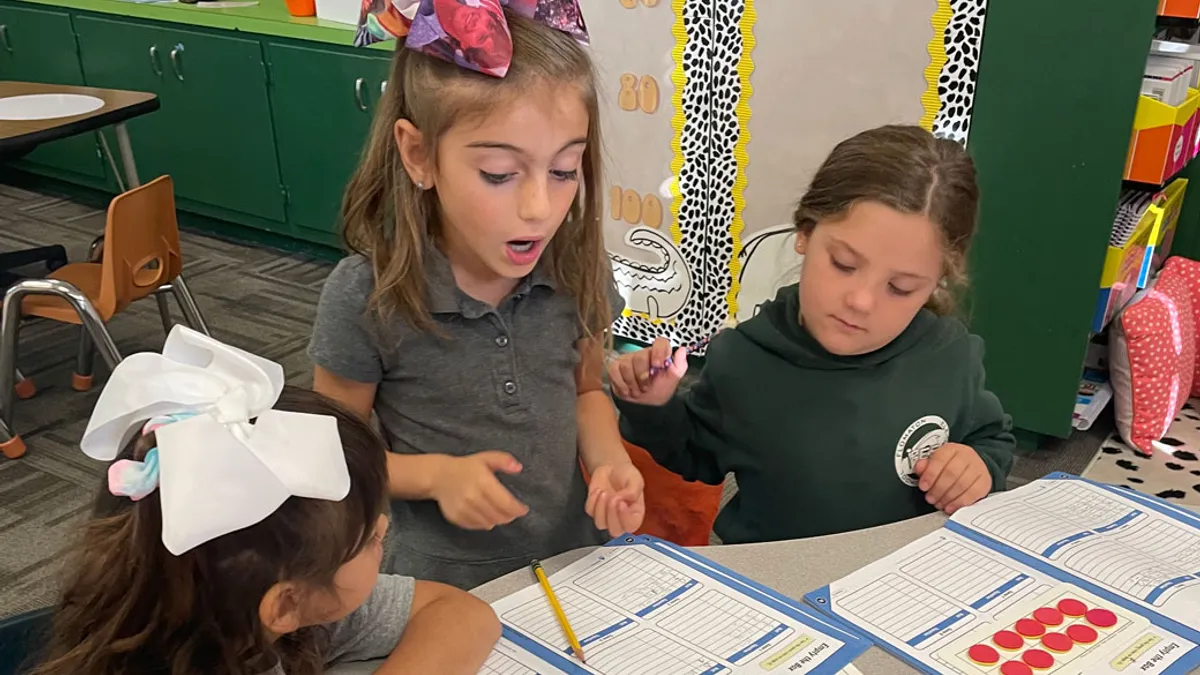With the pandemic in our rearview mirror, schools, districts, and states are searching for ways to address learning loss. In a push for continuous improvement, the Alabama State Department of Education implemented a statewide improvement model. Its goal was to improve outcomes for all schools, regardless of their academic achievement, according to Melissa Shields, NBCT, coordinator at the Office of School Improvement at ALSDE.
“We often say there is no perfect way to write a plan, but there are certainly inadequate ways to do so,” Shields says. Alabama’s plan aimed to be “differentiated and actionable based on the data, resources, structures, and accountability requirement.”
To get there, ALSDE adopted Cognia’s research-based continuous improvement framework and platform. Cognia was selected because of its commitment to high-quality work and strong track record of improving schools.
Combining Expertise with Tools
“Our relationship with Alabama goes back approximately a decade,” says Mark Quintana, EdD, vice president of Cognia’s Southeast region. “The Department of Education has evolved with us as our continuous improvement framework has evolved and as we’ve integrated our best practices resources. Our model has become more future thinking, planning out for three to five years. What I see is that when you have that articulation and alignment for continuous improvement within a district, parents have confidence in the quality and rigor of the system.”
Using the framework, each school created a school improvement plan that aligned with district and state strategies.
Cognia’s platform simplified reporting for all stakeholders, from the state office to individual classrooms, according to Shields. Cognia tools were already in use for other initiatives and “having everything in one place was appealing,” says Shields.
The system includes data tools designed to help inform decision-making. “Our formative resources measure teaching practice and student engagement to support continuous improvement and, ultimately, professional growth,” explains Quintana. Data sources include classroom observations, stakeholder surveys and needs assessment diagnostics to “help make decisions for professional learning.” These tools help ensure fidelity to curriculum program implementation and provide insight about what is working and what needs to be adjusted.
Alabama has also implemented Cognia’s Teacher Observation Tool statewide this academic year to help support equity between schools in alignment with their approved Every Student Succeeds Act plan.
“We plan to help schools align their plans, PLCs and instructional rounds to constructs and have created an Alabama Continuous Improvement Plan resource page outlining Beginning of the Year, Mid-Year and End-of-Year protocols, trainings and tools,” explains Shields.
The department will continue to grow this resource and coordinate with other state offices. Use of this observation tool is critical. The state has been training educators to ensure data obtained has the highest degree of reliability and validity.
Since implementing Cognia’s framework and tools, Alabama educational leaders have reported an uptick in stakeholder engagement and richer, more focused conversations about goals and equitable outcomes.
“More than ever, effective avenues to school improvement must be a priority,” says Jeff Langham, director of Cognia’s Southeast region. “What investment could be more important than our children’s education and well-being? Their future — and ours — is at stake.”
Cognia® is a global, nonprofit improvement organization dedicated to helping institutions and other educaton providers grow learners, teachers, and leaders. Cognia offers accreditation and certification, assessment, and professional services within a framework of continuous improvement. Serving 36,000 public and private institutions from early learning through high school in more than 90 countries, Cognia brings a global perspective to advancing teaching and learning. Find out more at cognia.org.










